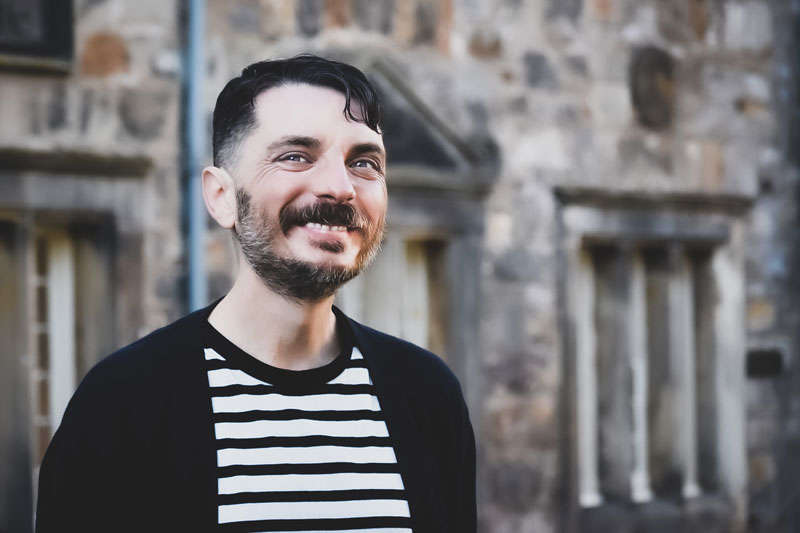MDiv Grad Explores “Grammar for Resurrection” in Genesis

If you were to ask Nicholas Emmanuel Mariakis where the concept of resurrection first shows up in the Bible, he’d take you back to the very beginning. He is currently exploring the “grammar for the resurrection” in Genesis as the subject of his PhD dissertation at University of St. Andrews in Scotland, where he is beginning his second year.
Mariakis says that the concept of resurrection, while not explicit in Genesis, is developed in the categories of reversals, re-creations, and God’s relationality. As an example, he points to how God enables Sarah to conceive and nurse Isaac at 90 years old, a picture of physical reversal and renewal. This "grammar for resurrection" provides cognitive and imaginative space which later biblical authors expand upon (e.g. Elijah raising a boy from the dead in 1 Kings 17).
“This comes to full crescendo in the New Testament with Jesus’ resurrection, and then in the book of Revelation, where reversals, re-creations, and God’s relationality are on full display,” he says.
The theme of resurrection is something that Mariakis can point to in his own life. He grew up in a secular household and was antagonistic towards religious belief as a young adult. But a supernatural experience involving a copy of the Bible in his friend’s basement changed his life forever.
“Think Exodus 3 meets Isaiah 6 meets Acts 9,” he says with a laugh. “I heard the voice of God audibly and was confronted with the sheer terror of the Almighty.”
He read the Bible from cover to cover within three months and began searching for a church to attend. That search ultimately led him to a Calvary Chapel church in Philadelphia, where he benefited from hearing the Bible preached verse by verse. From the beginning, Mariakis was fascinated with the Bible and always wanted to learn more.
“I loved the Bible and I wanted to know it better, and I knew that I wanted to find some kind of life in ministry, whatever that is,” he says.
He ended up enrolling Western Seminary as a Global student in the Master of Divinity program, studying online while visiting campus several times for Threshold intensives.
While at Western, Mariakis had the opportunity to work as a graduate fellow for professor Gerry Breshears and adjunct professor Tim Mackie. He developed a love for Hebrew and biblical theology and decided to continue his studies beyond the MDiv. In 2023, he began PhD studies in Scotland, studying under Old Testament Scholar Michael Lyons, who studied with Mackie at University of Madison-Wisconsin.
When Mariakis began thinking through possible topics for his PhD dissertation, he felt it was important to select something that would be encouraging to those outside of academia.
“PhDs can be very esoteric,” he admits. “I wanted to write something that would have academic value, but also could be translated to the average Jesus follower.”
As he continues to dig into the Old Testament text in his research, he is encouraged by the hope that Genesis offers believers.
"The God of Abraham and Sarah, Isaac and Rebekah, Jacob and Rachel, He too is our God. He makes life where there is no life and suffuses hope where there is no hope!"
Mariakis credits his time at Western for helping to shape the trajectory of his PhD studies, offering him a solid foundation in exegesis and the biblical languages. He appreciated Western's emphasis on biblical theology in particular, which trained him to read the Bible as narrative.
While living in Scotland, Mariakis continues to work parttime for Western as the director of The Good Scribe, Western’s writing center for students that he helped launch a couple years ago. He was inspired with the idea when he was reviewing papers as a graduate fellow, noticing that writing was an issue for many students.
“There is no end to improving as a writer,” he says. “I am on a quest to become the best writer I can be, and I want to help our students get to a level where they could write for publication, too.”